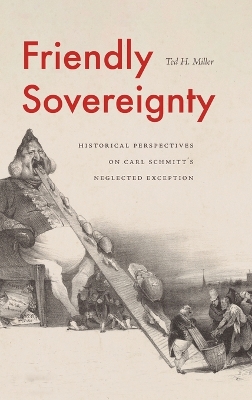Over the last one hundred years, the term "sovereignty" has come to be associated with the capacity of leaders to declare emergencies and to unleash harmful and often violent powers. Friendly Sovereignty explores the blind spots of this prevailing perspective.
In this book, Ted H. Miller challenges the view of sovereignty propounded by Carl Schmitt, the influential German jurist, political theorist, and member of the Nazi Party. Miller reveals Schmitt to be preoccupied with the powers of the sovereign exclusively in times of crisis, emphasizing the ability to harm, coerce, subdue, or injure an enemy. According to Miller, this view overlooks a much more common, though no less pernicious, use of sovereignty: the sovereign's exceptions for friends. Miller supports this thesis through an extensive study of the history of political thought, especially the work of the nineteenth-century historian Jules Michelet, the seventeenth-century political philosopher Thomas Hobbes, and Seneca, the ancient Stoic. Each of these thinkers considers hostile uses of sovereignty, but each also treats friendly sovereignty in detail, describing pardons, handouts, favors, and even clemency.
Analytically rigorous and thorough in its intellectual history, Friendly Sovereignty presents a more comprehensive understanding of sovereignty than the one typically taught today. It will be particularly useful to scholars and students of political theory and philosophy.
- ISBN10 0271093374
- ISBN13 9780271093376
- Publish Date 20 September 2022
- Publish Status Forthcoming
- Publish Country US
- Imprint Pennsylvania State University Press
- Format Hardcover
- Pages 248
- Language English
